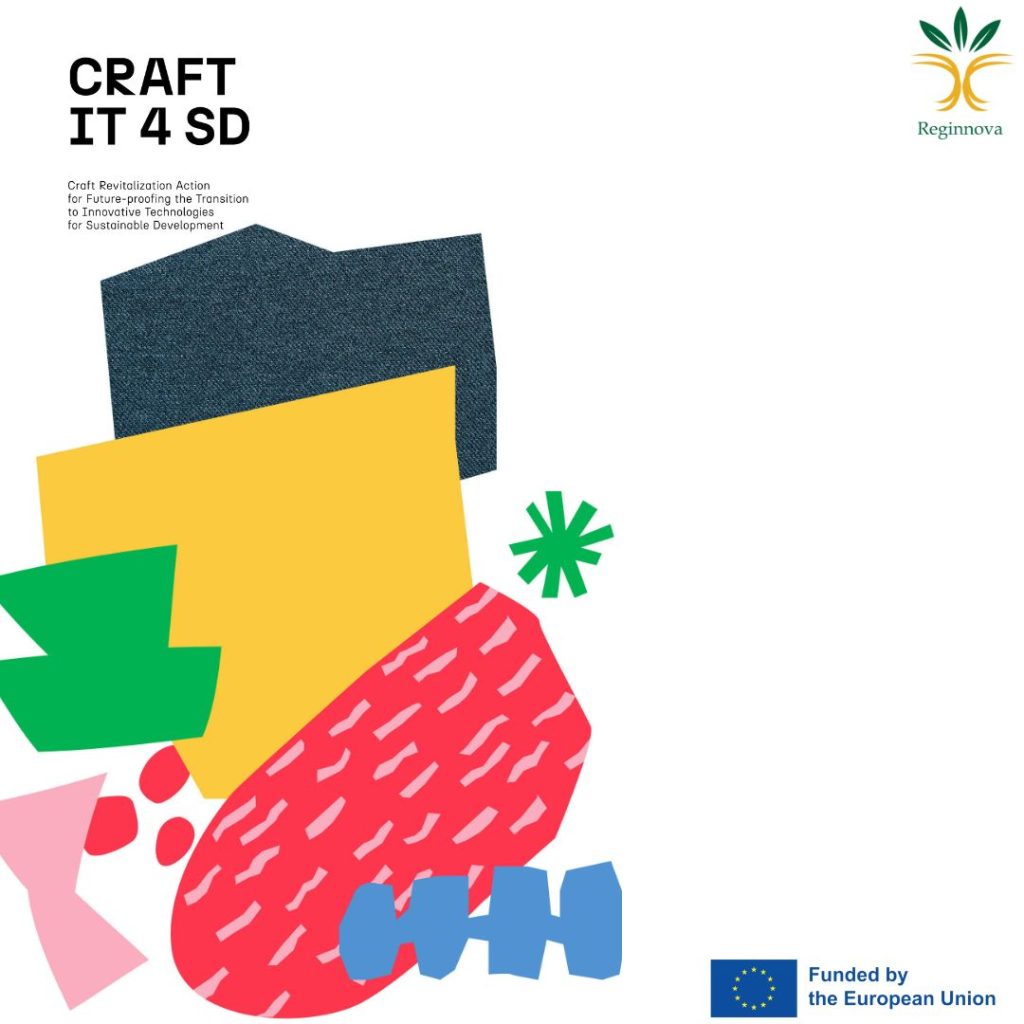CRAFT-IT4SD (Craft Revitalization Action for Future-proofing the Transition to Innovative Technologies for Sustainable Development), has officially launched with a two-day kick-off meeting on January 10th and 11th in Denmark. Organised by the project coordinator Aarhus University (AU) and partner organisation Via University College, and joined by all consortium partners, the meeting took place at two key locations: The campus of VIA University College in Herning and MiXR Lab in Aarhus.
CRAFT-IT4SD, set to span three years, is funded by the European Commission’s Horizon Europe programme under the “Cultural and creative industries for a sustainable climate transition” call (HORIZON-CL2-2023-HERITAGE-01-02). It aims to put the Cultural and Creative Sectors and Industries (CCSI) in the driver seat for the sustainable transformation by the cross-fertilisation of traditional craftsmanship, particularly in the field of textile and fashion, and cutting-edge technologies and sustainable business practices. The consortium is made up of 11 partners (10 Beneficiaries and one Associated Partner) from 7 different EU countries, including industry partners, academia and research centres, SMEs, creative clusters, and innovation partnerships.
The first day unfolded at VIA University College campus in Herning, Central Denmark, offering insights into the Herning pilot and VIA’s design and textile resources. Led by VIA Research and Development Centre for Creative Industries and Professions (CKEP), the Herning pilot is a cornerstone of Craft-IT4SD, alongside pilots in Northern Finland, Romania, and Catalonia. Focusing on Herning’s textile evolution, from historical roots to modern technological advancements, the pilot exemplifies the potential of interdisciplinary collaboration in fostering sustainable innovation. Craft-IT4SD’s exploration in Herning aims to leverage craftsmanship as a catalyst for technological advancements, yielding sustainability experiments and prototypes, incorporating customer insights.
The second day, hosted by MiXR Lab in Aarhus, saw the consortium delve deeper into project architecture, outlining tasks for the ensuing three years. Situated within Aarhus’ harbor precinct and integral to Filmby Aarhus, MiXR Lab advocates for the integration of new technologies in film, TV, and gaming. Participants were acquainted with immersive media applications and extended reality technologies’ potential in traditional crafts. Aarhus University’s research lab for Participatory Audio-Visual Design (CAVI) complemented this with a presentation on participatory technologies available for Craft-IT4SD.
Project coordinator Adriënne Heijnen from Aarhus University’s Centre for the Digital and Green Transformation in Cities and Communities remarked, “With the successful launch of CRAFT-IT4SD, we position European craftsmanship at the forefront of sustainable transformations in the fashion and textile industry.” Grounded in a robust ecosystem approach, Craft-IT4SD seeks to merge craft traditions with cutting-edge technologies, fostering impactful sustainable practices and business avenues.
For further information on Craft-IT4SD and upcoming activities, please reach out to info@craft-it4sd.eu.
Contact Information:
Adriënne Heijnen
CRAFT-IT4SD Project Coordinator
ahe@cc.au.dk or info@craft-it4sd.eu
More information available at: https://craft-it4sd.eu/

